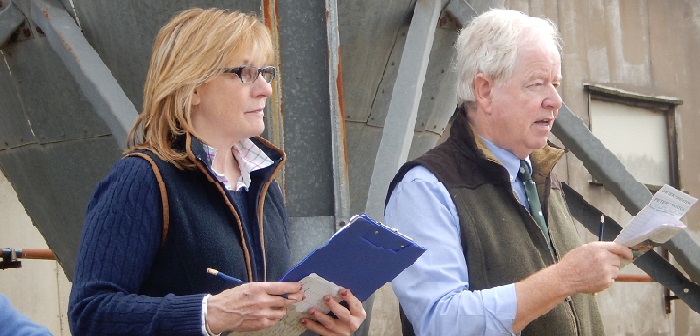Although the SPP put on a significant 1.43p this week to stand at 163.86p, signs are emerging from the other side of the Channel that prices are levelling off, or in some cases easing back.
The influential German Producer Price lost another 6 cents following last week’s 5 cents drop, which in our money is equivalent to 150p/kg deadweight. But if the gap gets any wider, cheaper imports may start to penetrate the UK market to our disadvantage.
Most, but not all, weekly contribution prices remained at similar levels and spot quotes have been anywhere between stand on and the odd copper or two off in places, and most bids were in the 172p-175p region.
The Euro has ended the week worth 88.12p, which is very little difference to a week ago, but despite this, German cull sow prices took another knock, dropping by 5p/kg. This means that UK cull sow quotes were generally in the 90p-92p region, reflecting the start of the holiday season in Northern Europe at a time when many travel to warmer climes and demand for cull sow products is affected to some extent.
Weaner values continue to improve, however, with the latest AHDB 30kg ex farm average quoted at £61.12/head and the 7kg average now £43.98/head. But as previously, spot weaner sellers are still in a strong position to earn significant premiums over and above the average price, especially for large loads.
With the UK cereal harvest now underway, reports of higher than expected barley yields are filtering through. Barley certainly looks good value compared with wheat as far as pig producers are concerned, trading at a discount of around £30/t for new crop, with UK spot feed barley selling on an ex farm basis at around £113/t, compared with feed wheat quoted at £146.50/t.
UK feed wheat futures prices ended the week on another reasonably firm note, with November quoted at £149.75/t and next May at £155.55/t.
UK protein prices have, however, increased with July 7 prices for 48% soyameal quoted at £297/t, compared with £278/t seven days earlier, although 34% rapemeal has remained at generally similar levels on the week, worth £174/t.
And finally, on the welfare front, NPA members are being urged to call for the government to back the UK livestock sector’s high welfare standards. With Brexit ahead, there is great concern that new trade deals forged with importers once we leave the EU could make the UK extremely vulnerable to cheaper, lower standard imported products. The industry still needs to keep persuading consumers that it is worth paying the extra in terms of welfare alone, ie ‘realise the difference’.




